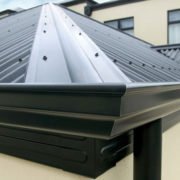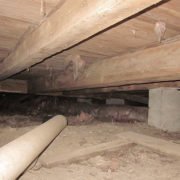The Importance of a Property Inspection
The Importance of a Property Inspection
With so many costs surrounding the purchase of a new home, it’s understandably tempting to cut corners where possible. LIM reports, loan application fees, conveyancing fees, property rates, property insurance – the list goes on. And that’s on top of the more obvious things like deposits and moving costs.
But can you imagine anything worse than going through all of those steps, spending all that money… and then finding out the hard way that there’s something seriously wrong with the property? It’s better to add a little extra to your bills upfront than risk everything falling down around you – possibly in a very real sense. You can’t put a price on peace of mind.
Much of the same logic applies when you’re selling your house. To ensure that you and the buyer have a streamlined sale, it’s good to either fix up any problems before you put your property on the market, or to be upfront about any aspects of the home that need a little attention. Keeping yourself in the dark when you know that there may be problems just means that you’re likely to complicate things down the track when buyers back out because they’ve baulked at the report that’s come back.
Dealing with established professionals in any field is important. When it comes to housing, though, that importance is even greater. Whether it’s somewhere you and your family will be living or an investment property, you need that assurance that the home’s inhabitants are safe and secure.
At The Property Inspectors, our core value is to continuously improve our knowledge – and as such, we’re always up-to-date on new issues arising in the building industry and any changing legislation or guidelines established by regulatory bodies. Don’t forget, you can check out a sample building report on our website – so you can see just how thorough an inspection we perform.
Working with seasoned professionals also means tapping into networks that they create. An established property inspection company is going to have a whole lot of recommendations for who you can trust when it comes to repairs.
So whether you’re buying or selling, make sure you’ve got the peace of mind you need to take the next step – and get in touch for a property inspection from professionals that you can trust.
Needing a Property Inspection?
We offer detailed and thorough property inspections with a same-day turnaround!















